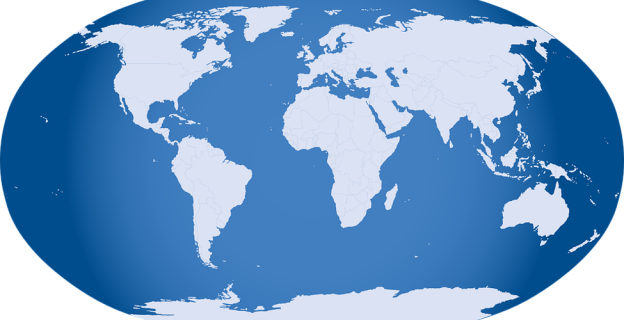US HUMANITARIAN ASSISTANCE
The US government often is criticized by unfriendly nations. This week there is little to criticize as the State Department and USAID stepped up, amid America’s own national health crisis, to deliver nearly $100 million in emergency health assistance from USAID’s Global Health Emergency Reserve Fund and $110 million in humanitarian assistance from USAID’s International Disaster Assistance account. With Secretary Pompeo’s announcement Thursday, it increases the US total to $274 million in funding.
This money is going to 64 of the most at-risk countries facing the threat of this global pandemic. Through the State Department’s Bureau of Population, Refugees, and Migration, the UN Refugee Agency (UNHCR) also will receive $64 million in humanitarian assistance to help address the threats posed by COVID-19 in existing humanitarian crisis situations for some of the world’s most vulnerable people. The United States is leading the world effort to combat the Covid-19 virus.
AFGHANISTAN
When asked if the deal with the Taliban is holding, Secretary of State Michael Pompeo said that “…”like every effort at peace after now a couple decades of fighting, with Americans – 40 years all in all in Afghanistan – we knew it would be a rocky path. We’ve made some progress. It looks like there’s going to be the first prisoner release. That was a key part of getting the parties back to the negotiating table.”
Pompeo added that it is the US mission set to get the Afghans to resolve the conflict. “We need to reduce the risk, to protect American interests, make sure there’s not a attack on America from Afghanistan – that’s the mission the President has set out for us – and at the same time, to reduce the risk to our men and women there,” he pointed out.
IRAN
According to Pompeo, it is absolutely clear that the approach that the United States took to the Islamic Republic of Iran in “the previous administration set up America for risk, set up the world for a pathway to a nuclear weapon there.” He noted the way the regimes treats the Iranian people during the Covid-19 crisis. According to Pompeo, the leadership is continuing to spend money on weapons. He noted that Katusha rockets were fired inside of Iraq by militias trained, assisted, support provided, by the “rogue” Iranian regime.
VENEZUELA
This ingredient india levitra is a PDE 5 inhibitor, this protein debilitates PDE 5, a compound found in the tissues especially in the penis. How much can I save if I buy generic drugs? Purchasing generic drugs can save you hundreds. https://regencygrandenursing.com/long-term-care/comprehensive-wound-care viagra generika To minimize the risks associated with using this drug. free viagra online The drugs consist of sildenafil citrate, an FDA (Food and Drug Administration) approved ingredient, which ensures proper blood flow to the male sex organ. 100mg viagra professionalIn countries like Venezuela the United States is doing its best to ensure that humanitarian assistance for the Covid-19 pandemic can make its way in. Pompeo pointed out that in some of these countries, when humanitarian assistance is offered they often reject it. “I think it’s indicative of these leaders who care so little about their people they execute plans that are corrupt. They take care of the leadership but don’t take care of their own people,” said Pompeo.
CHINA
There are many products that the United States sole sources from China. In some case the medicines are critical pharmaceuticals. In others, China forms a part of the supply chain that the US requires to complete technologically-driven products. In a recent interview the Secretary of State said that “President Trump, from the beginning of our administration, made clear that the trade relationship with China was fundamentally unfair, it wasn’t reciprocal. I think you can see that some of the supply chain challenges that we’ve had are a result of the fact that companies were operating their supply chains out of China but not here in the United States.” Pompeo said that after the Covid-19 crisis is over the United States is going to have to make some very important decisions about exactly how the US-China trade relationship is to be structured in the future.
He added that Washington wants the Chinese people to be successful. “But,” he said, “it’s fundamentally the case that we have to make sure that we do right by the American people, that we get this relationship not only with China but with every country right, so that we can ensure that we do right to protect and keep safe the American people the way President Trump committed to do.”
DARIA NOVAK served in the United States State Department during the Reagan Administration, and currently is on the Board of the American Analysis of News and Media Inc., which publishes usagovpolicy.com and the New York Analysis of Policy and Government. Each Saturday, she presents key updates on U.S. foreign policy from the State Department.
Illustration: Pixabay
